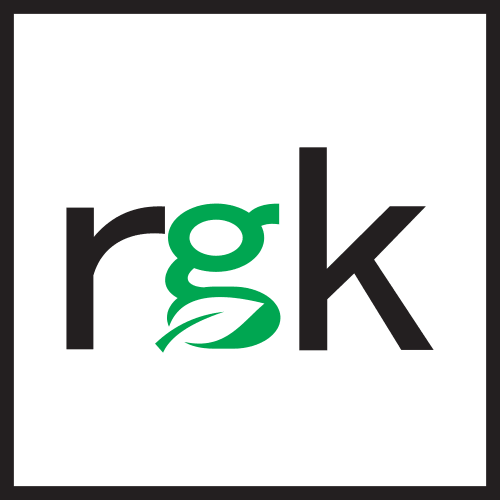Natural Gas is not only a clean energy fuel (“environmental green energy”) consisting primary of methane (CH4), but also an ideal substitute for other energy fuel like gasoline (petrol), diesel fuel, and even liquid petroleum gas (LPG) because of its high octane and relatively stable pricing among those choice of energies.
The favoring of natural gas fuel is driven also by the fact that Indonesia natural gas found reserve has been significantly increased in the last 10 years. With a proven reserve of 112,5 TSCF and level of production reaching 3,02 TSCF per year, the reserve to production ratio (R/P) of Indonesia natural gas is expected to reach more than 32 years.
CNG for transportation fuel or in Indonesia is more popularly known as “BBG” or Bahan Bakar Gas, had actually been introduced by state own company PT. Pertamina back in 1986. Today, through most major cities in Indonesia, CNG Fuel or BBG is not only sold through CNG Stations own by PT. Pertamina with the brand name “EnvoGas,” or CNG Stations own by PT. Perusahaan Gas Negara, Tbk under the brand name GasKu, but also through private CNG Stations owner under their own different brand from JakproGas to simply just CNG.
Despite worldwide, there almost 28 million Natural Gas Vehicles (NGV) by 2019, in which led by China (5 million), Iran (4 million), India (3 million), Pakistan (3 million), Argentina (3 million), Brazil (1.8 million), and Italy (1 million), currently in Indonesia, not too many automobile manufacturers provide an already built-in CNG systems in their cars. But there is technology that has been around since the early 1900 for gasoline or diesel run engine to be able to use CNG. The system is called a CNG Conversion system or CNG Conversion Kits.
A CNG fuel conversion is a package of equipment that can transfers high pressure natural gas from the vehicle’s storage tank to the engine compartment where pressure is reduced to the operating pressure of the engine’s fuel-management system. There are basically 3 (three) types of conversion engine system to CNG.
1. Bi-Fuel or Switchable System
The Bi-fuel systems are also called “switchable” systems is a CNG Conversion used only for gasoline type engine. Through this conversion system the driver can freely switch the engine to run on gasoline or natural gas fuel. No modification is done toward the engine. With the Bi-Fuel CNG system, the natural gas is injected into the engine intake air the same way gasoline fuel is injected into the gasoline type engine.
Thus, the engine will function the same way as a gasoline engine where the fuel-air mixture is compressed during the piston upstroke cycle and ignited by a spark plug where the expanding gases produce mechanical energy in the form of rotational forces that propel the vehicle. The installation for the Bi Fuel conversion kit is pretty much simple, in which typically require less than a day to install to a vehicle.
Because of this simplicity and cost of an injection type gasoline engine Converter kit range from US$500 – US$700 (excluding the storage tank), owners the vehicle can easily obtain the maximum economic benefit from the conversion. The only disadvantage from this Bi Fuel is that because typically are installed to a small-medium size vehicle, the owner of the vehicle must give up a partial of its space for its storage tanks
2. Dual Fuel System
A Dual Fuel system is mostly used only for diesel engine conversion. Through this conversion the diesel engine is modified to be able to use natural gas together with the diesel fuel. The engine is basically unchanged and continues to use compression ignition of diesel for ignition of the natural gas fuel. Unlike the dedicated system, whereby the engine now can only burn natural gas fuel, the dual fuel system the engine will burn natural gas and diesel fuel simultaneously.
The ratio mix between natural gas and diesel fuel when the truck is in operation very much depend on factors like road condition, traffic condition, driver behavior, engine performance, engine type compatibility, etc. The advantage of using the dual fuel conversion, the engine is still be able to operate 100% diesel fuel, or alternately, on a mixture of diesel fuel and natural gas.
The disadvantage, however, is that the vehicle owner might not be able to obtain fully the economic benefit of the lower cost of CNG fuel as the engine will still require a mixture of diesel fuel from 40% at best condition, up to 100%. Depending on the size and type of the diesel engine, this Dedicated Conversion System can range from US$4,500 – US$8.500 (excluding the storage tanks).
3. Mono or Dedicated Conversion System
An engine being converted to CNG called as a dedicated system when the vehicle after being converted can only runs on natural gas. A dedicated conversion is commonly done for a diesel type engine, whereby It can be either done by replacing the entire engine block with a natural gas engine, which is known as Repowering, or the original engine itself have gone through a limited modification towards its engine piston cylinders.
The advantage of using this type of conversion is that the vehicle owner can obtain fully of the economic benefit whenever natural gas cost less than the alternate fuel. The disadvantage, however, because the vehicle can no longer use other fuel then natural gas, availability of CNG stations must be available through its driving coverage. Depending on the size and type of the diesel engine, this Dedicated Conversion System can range from US$7,500 – US$15.000 (excluding the storage tanks).
RRS Group, through its sister company PT. Raja Gas Samudra, holds a Certified Workshop Installer of CNG Conversion from the Directorate General of Land Transportation, Department of Transportation, Indonesia. RRS have converted more than 4.000 units of gasoline run vehicle using our Italian made Bi-Fuel system, 100 trucks using our Dedicated Conversion system, and 30 units generator sets using our Dual Fuel System.



